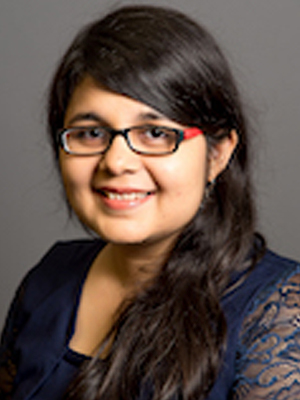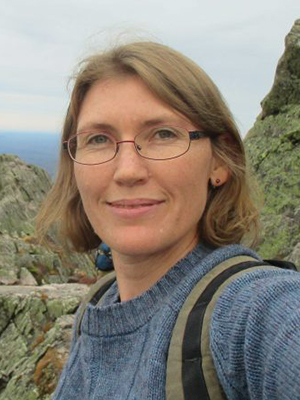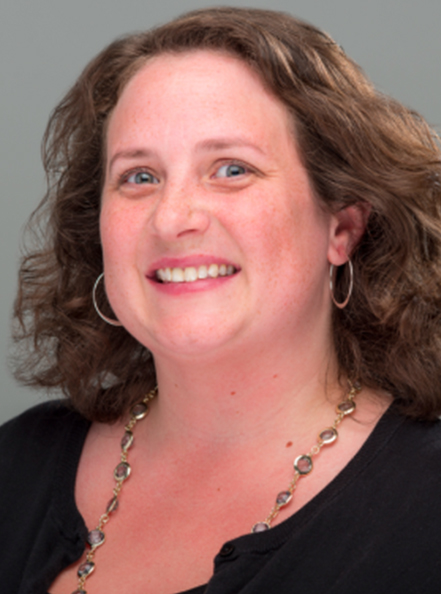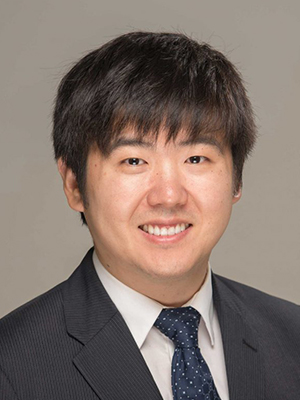University of Maine Presidential Fellows

Ayesha Maliwal-Bundy
Lecturer in Mathematics
Department of Mathematics and Statistics

Laura Millay
Research and Evaluation Coordinator
Maine Center for Research in STEM Education

Kristy Townsend
Adjunct Professor of Neurobiology
School of Biology and Ecology

Zhen Zhang
Administrative Coordinator
Graduate School of Biomedical Science and Engineering
Four faculty and staff members have been named University of Maine Presidential Fellows in a new leadership program launched by President Joan Ferrini-Mundy to advance three themes tied to UMaine’s strategic plan — fostering learner success and research learning; research-practice partnerships; and telling the UMaine story.
The themes for 2019–20 are designed to engender universitywide attention to these important priorities.
Presidential Fellows Kristy Townsend, associate professor of neurobiology, and Ayesha Maliwal-Bundy, a lecturer of mathematics, will focus on fostering learner success and research learning. They will help define the scope and elements of the initiative, and coordinate its implementation, including the efforts to ensure that every UMaine student has access to an authentic learning experience that integrates research, scholarship or creative production.
Presidential Fellow Laura Millay, research and evaluation coordinator for the Maine Center for Research in STEM Education (RiSE Center), will focus on research-practice partnerships that are fundamental to UMaine and the University of Maine at Machias. The initiative will foster communication and collaboration across the university’s multiple and varied partnership to provide a larger framework for encouraging and sustaining those collaborations, evaluating their impact on practice and enhancing learning opportunities for students.
Presidential Fellow Zhen Zhang, administrative coordinator in the Graduate School of Biomedical Science and Engineering, will focus on telling the UMaine story. He will develop and help implement creative plans for enhancing UMaine and UMM visibility and reputation.
“We have leaders here at the university — in Orono, Machias, and all of our other statewide locations — who are in formal roles as administrators, who may aspire to those sorts of positions, or who are leading through their day-to-day work in a more focused way,” said Ferrini-Mundy in her announcement of the program in November. “I appreciate the great ideas and efforts of so many, not only in their specific areas of work, but also in helping shape what is next for our university. We need to consider what we need to do to ensure that the education and opportunities we provide truly have as much potential as possible to shape the future.”
Townsend, a UMaine alumna known for her advocacy and implementation of learning and evidence-based approaches in her pedagogy and curriculum, talked about her passion for undergraduate research experiences and bringing authentic research into the classroom setting.
“UMaine is a sole leader in the state in terms of research and innovation, and student involvement in research and creative classroom curriculum,” said Townsend, who will serve as a Presidential Fellow through summer 2020. “This is our selling point, and I am passionate about getting this message out statewide and nationwide.”
Maliwal-Bundy noted that she is interested in increasing emphasis on impactful teaching and a holistic student experience that takes advantage of all the opportunities of the state’s public research university.
“I want to focus on strengthening advising and increasing communication across departments to ensure students are making informed decisions and feel supported,” Maliwal-Bundy said. “I want to encourage growth in teaching effectiveness through the use of concept inventories to measure learning gains. The data generated from these can help inform instructors about their teaching, ensure courses are aligned with the outlined learning outcomes, and highlight pedagogical differences that can promote evidence-based teaching practices.”
UMaine research-practice partnerships (RPPs) affect economic and social sectors throughout Maine and beyond, as well as national and international research, and have tremendous potential for even more significant impact, Millay said.
“Coordinating across RPPs will create an opportunity to learn from, and better document, our collective successes, challenges and solutions,” Millay said. “I believe that we can use this strategy to increase our collective efficiency and effectiveness, as well as to open rich opportunities for collaborative research and theory-building to elevate the quality and profile of our research.”
Zhang, a UMaine alumnus, is a photographer and videographer. He notes that the university “serves as a conduit to so many science communities across the world that is hard to conceive of the extent of our reach.”
“I want to capture and distill our many activities into narratives of discovery that will highlight the incredible work that happens here,” Zhang said. “I think it is so important to share and make accessible all the work that happens within our decentralized communities. (I want to illuminate) how unique and precious a community of researchers and the culture of collaborative research is for Maine and beyond.”
